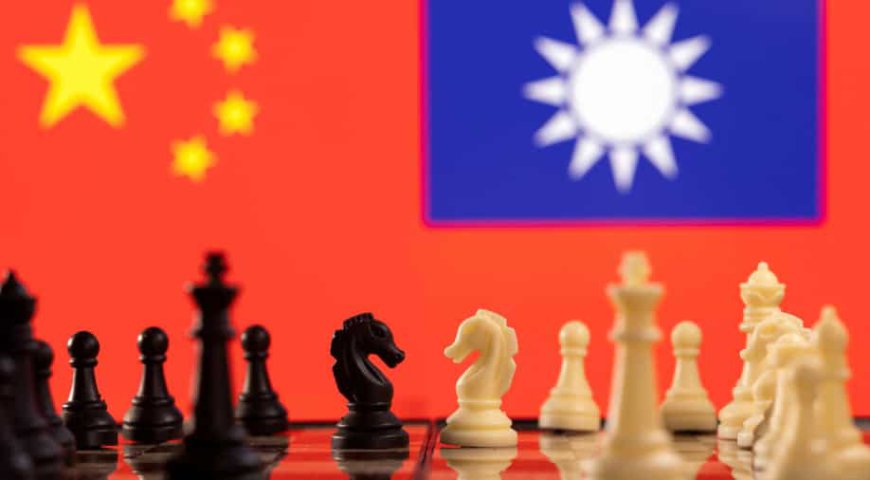Taiwan Clarifies Biosafety Lab Project Amid Bioweapon Speculations
Taiwan responds to rumors of developing bioweapons with plans for a state-of-the-art biosafety lab. Amidst escalating tensions, the island nation emphasizes the lab's role in defense against biological threats, dispelling claims of weaponization. Explore Taiwan's strategic move to bolster its capabilities and counter misinformation in this critical geopolitical context.

In response to mounting tensions and speculations, Taiwan recently announced plans for a state-of-the-art biosafety research and development facility. Let's delve into the details of this strategic move and its significance in the face of geopolitical challenges.
Unveiling the Biosafety Lab Amid Rising Tensions: Amidst growing pressures from the People's Liberation Army (PLA), Taiwan has unveiled ambitious plans for a cutting-edge biosafety research and development facility. This move comes at a crucial time, with recent speculations suggesting U.S. involvement in urging Taiwan to develop biological weapons.
Clarifying Objectives: Contrary to these reports, Taiwan's defense ministry swiftly clarified that the primary objective of the project is not the development of biological weapons. Instead, it aims to enhance Taiwan's capacity to detect and counter weaponized biological agents. Officials emphasized the increasing threat of highly contagious pathogens and underscored the lab's crucial role in pandemic prevention.
Strengthening Defense Against Biological Warfare: The biosafety lab, set to be constructed by the Ministry’s Medical Affairs Bureau, is a strategic initiative to bolster Taiwan's defense capabilities against biological warfare. This aligns with Taiwan's commitment to the Convention on the Prohibition of Bacteriological and Toxin Weapons, reinforcing its stance against the production, acquisition, and use of biological weapons.
Defensive Nature Emphasized: Yang Chung-chi, spokesman for the Medical Affairs Bureau, highlighted the defensive nature of the lab. He emphasized that, in dealing with nuclear and biological warfare, the military prioritizes defense and protection. Reassuringly, he stated that Taiwan has no intentions to develop, manufacture, or stockpile biological and toxic agents for military use.
Navigating Cross-Strait Tensions: The announcement of the biosafety lab follows a notable surge in cross-strait tensions, marked by intensified military activities by the PLA around Taiwan. Despite constant threats from Beijing, Taiwan remains resolute in its commitment to sovereignty.
Refuting Bioweapon Development Claims: In response to the speculations and claims of bioweapon development, both the presidential office and foreign ministry of Taiwan issued multiple statements. They vehemently refuted these allegations, labeling them as fabrications aimed at undermining the ruling Democratic Progressive Party government.
Denial by Former Premier Su Tseng-chang: Former premier Su Tseng-chang also weighed in on the controversy, denying any involvement in discussions regarding bioweapons development. As Taiwan navigates this delicate geopolitical landscape, the construction of the biosafety lab emerges as a strategic move to fortify defenses, dispel misinformation, and assert commitment to international treaties.
Conclusion: Taiwan's proactive steps in constructing the biosafety lab showcase its commitment to security, dispelling rumors, and fortifying defenses in the face of evolving geopolitical challenges.







